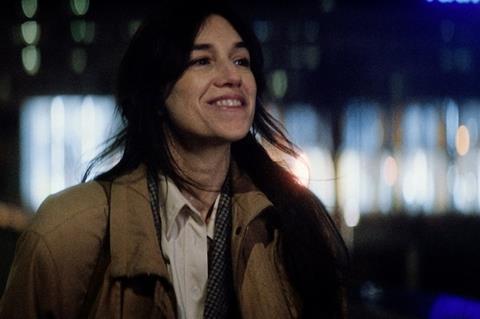Charlotte Gainsbourg leads Mikhaël Hers’ gentle, optimistic drama set in 1980s Paris

Dir: Mikhaël Hers. France. 2022. 111 mins.
Following the breakdown of her marriage, Élisabeth (Charlotte Gainsbourg) is left with two teenage children who sidestep cautiously around her sadness, and little in the way of future hopes or career prospects. But over the course of a story which drifts languorously through much of the 1980s, she finds a job, a purpose and makes a difference in the lives of those she touches, not least Talulah, a homeless girl to whom she offers shelter and a degree of much-needed stability. Mikhaël Hers’ follow up to his acclaimed Venice prize-winning drama Amanda is a gentle, wafting piece of storytelling which zeros in on seemingly inconsequential but intimate moments in the lives of the family at its heart. In its unassuming, intuitive way, the film is rather beguiling, if a little gauzy and elusive at times.
The film is rather beguiling, if a little gauzy and elusive at times
Although this is not a film which leaves much in the way of a lasting impression, relatable stories of women in early middle age bouncing back from divorce have undeniable appeal, and thematically, the picture is likely to connect with an older, female-skewed audience. The slightly nebulous approach – this is a story which floats and curls in on itself like the smoke from one of Élisabeth’s innumerable cigarettes – may mean that the film struggles to assert itself in the competitive arthouse market. There is also the issue of an unevenness in the quality of some of the performances – a few jarring moments of inauthenticity can undermine the wider credibility of the picture.
The film opens on May 10th, 1981 – the day on which François Mitterrand is elected President – and the streets of Paris are awash with optimism and the celebration of a new era. Hers weaves in what appears to be period archive footage throughout the film, making a virtue of the shifts in aspect ratios and the widely varying quality of film stock. But for Élisabeth and her children, politically engaged Judith (Megan Northam) and directionless, poetically inclined Matthias (Quito Rayon-Richter), it’s a time of uncertainty. Their new home is chic, a glass-walled apartment with a view of stylish urban brutalism. But the hard edges of the interior design are a stark contrast to the vulnerable emotional soft tissue which is exposed in the newly abandoned wife and mother.
Unable to sleep, Élisabeth finds solace in a late night radio phone-in show hosted, throatily, by Vanda Dorval (Emmanuelle Béart). On a whim, she writes to Vanda, bearing her heart, and is offered a job manning the switchboard. It’s through this that she encounters 18-year-old runaway Talulah (Noée Abita), a doe-eyed baby-goth with a nascent drug habit. Fiercely impressive in Charlène Favier’s Slalom and in the title role in Léa Mysius’ Ava, Abita seems less assured as the strung-out Talulah, with her wispy little girl voice and a personality which is blurred around the edges by her addiction. At times, it’s as though Talulah’s main role in the film is what she represents to other characters – for Élisabeth, a reminder of her own strength and agency; for Matthias, an enduring first love.
Fittingly, for a film which weaves its own leisurely pace through a decade, this is a story which doesn’t neatly tie up with a sense of closure. Instead, it winds down, with one chapter ending and another beginning. It’s a conclusion which, while not emphatically upbeat, gives its characters leeway to have hope for the future.
Production company: Nord-Ouest Films
International sales: mk2 Films intlsales@mk2.com
Producer: Pierre Guyard
Screenplay: Mikhaël Hers, Maud Ameline, Mariette Désert
Cinematography: Sébastien Buchmann
Editing: Marion Monnier
Production design: Charlotte De Cadeville
Music: Anton Sanko
Main cast: Charlotte Gainsbourg, Quito Rayon-Richter, Noée Abita, Megan Northam, Thibault Vinçon, Emmanuelle Béart, Laurent Poitrenaux, Didier Sandre, Lilith Grasmug, Calixte Broisin-Doutaz
























